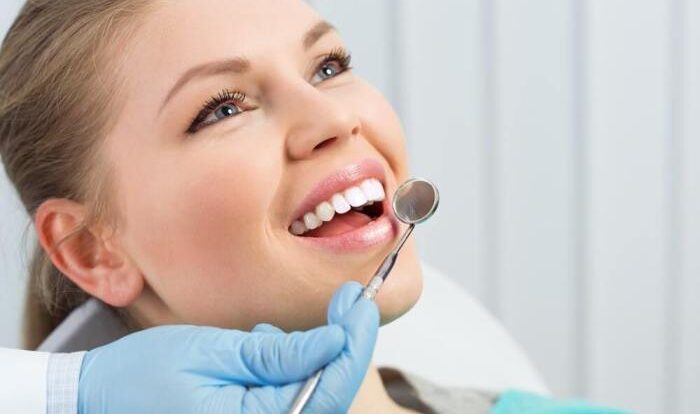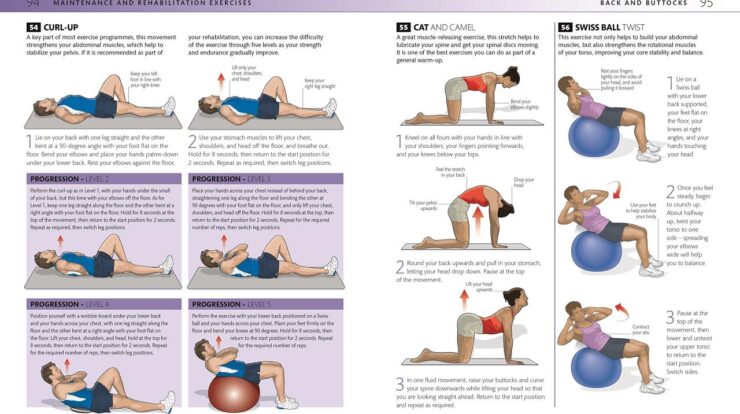
How to cure gum disease without a dentist – If you’re dealing with gum disease and don’t have access to a dentist, this guide will provide you with all the information you need to effectively manage your condition. From natural remedies to non-invasive treatments, we’ll cover everything you need to know to achieve healthy gums.
Gum disease, a common oral health issue, can lead to serious complications if left untreated. While visiting a dentist is the most effective way to address gum disease, there are several home remedies and non-invasive treatments that can provide relief and improve your oral health.
Home Remedies for Gum Disease

Gum disease, also known as periodontal disease, is a common condition that affects the gums and the supporting structures of the teeth. It can range from mild inflammation to severe infection and tissue destruction. While professional dental care is essential for treating gum disease, there are several natural remedies that can help alleviate symptoms and support oral health.
Natural remedies for gum disease offer several benefits. They are often gentler on the gums than conventional treatments, have fewer side effects, and can be more affordable. Additionally, some natural remedies have antimicrobial and anti-inflammatory properties that can help fight infection and reduce inflammation.
Effective Home Remedies
- Saltwater rinse:Gargling with warm saltwater can help reduce inflammation and kill bacteria in the mouth. Mix 1/2 teaspoon of salt in 8 ounces of warm water and rinse for 30 seconds, several times a day.
- Hydrogen peroxide rinse:Hydrogen peroxide has antibacterial and antiseptic properties. Mix 1 part 3% hydrogen peroxide with 2 parts water and rinse for 30 seconds, once or twice a day. Do not swallow the solution.
- Tea tree oil:Tea tree oil has antibacterial and anti-inflammatory properties. Add 2-3 drops of tea tree oil to a glass of water and rinse for 30 seconds, once or twice a day. Do not swallow the solution.
- Aloe vera gel:Aloe vera gel has anti-inflammatory and healing properties. Apply a small amount of aloe vera gel to the affected gums and massage gently. Leave it on for 10-15 minutes and then rinse with water.
- Cranberry juice:Cranberry juice contains compounds that can prevent bacteria from adhering to the teeth and gums. Drink unsweetened cranberry juice regularly to help prevent and treat gum disease.
Caution:While home remedies can be beneficial, it is important to use them with caution. Some remedies may interact with medications or have other side effects. Always consult with a healthcare professional before using any home remedies, especially if you have any underlying health conditions.
Non-Invasive Treatment Options

Non-invasive treatments for gum disease aim to control the infection and prevent further damage without requiring surgery or cutting of the gums. These treatments are typically less invasive, less painful, and require less recovery time compared to surgical options.
Scaling and Root Planing
Scaling and root planing is a deep cleaning procedure that removes plaque, tartar, and bacteria from the teeth and below the gum line. It involves using specialized instruments to gently scrape away the buildup and smooth the root surfaces of the teeth, making it harder for bacteria to reattach.
Advantages:
- Non-surgical and less invasive
- Can be performed in a single appointment
- Effective in removing bacteria and reducing inflammation
Disadvantages:
- Can be uncomfortable or painful during the procedure
- May require multiple appointments if the gum disease is severe
- Can cause temporary sensitivity to hot or cold
Antimicrobial Mouthwashes
Antimicrobial mouthwashes contain ingredients that kill bacteria and reduce inflammation in the mouth. They are used as an adjunct to brushing and flossing and can help control gum disease by reducing the bacterial load.
Gum disease is a serious condition that can lead to tooth loss. If you’re looking for a way to cure gum disease without a dentist, there are a few things you can do. You can try using natural remedies, such as saltwater rinses or tea tree oil.
You can also try taking over-the-counter medications, such as ibuprofen or acetaminophen. If your gum disease is severe, you may need to see a dentist for treatment. However, if you’re looking for a way to cure gum disease without a dentist, here are a few things you can try .
Advantages:
- Easy to use and can be incorporated into daily oral hygiene routine
- Can help reduce inflammation and bleeding
- May prevent or delay the need for more invasive treatments
Disadvantages:
- Not as effective as scaling and root planing
- Can cause side effects such as dry mouth or taste alterations
- May not be suitable for everyone, especially those with certain medical conditions
Laser Therapy
Laser therapy uses a laser to target and kill bacteria in the periodontal pockets. It can also stimulate tissue regeneration and promote healing. Laser therapy is a relatively new treatment for gum disease, and more research is needed to determine its long-term effectiveness.
Want to learn how to cure gum disease without a dentist ? Check out the link for more information. Then, come back here for more tips on how to cure gum disease without a dentist.
Advantages:
- Less invasive than surgery
- Can be used to treat hard-to-reach areas
- May reduce bleeding and inflammation
Disadvantages:
- Can be expensive
- May require multiple treatments
- Effectiveness may vary depending on the individual
Importance of Good Oral Hygiene

Maintaining good oral hygiene is paramount for preventing and treating gum disease. Regular brushing and flossing effectively removes plaque and bacteria from your teeth and gums, reducing the risk of inflammation and infection.
Brushing and Flossing
Brush your teeth twice a day for two minutes each time. Use a soft-bristled toothbrush and fluoride toothpaste. Angle the toothbrush at a 45-degree angle to the gum line and gently brush in circular motions. Floss once a day to remove plaque and bacteria from between your teeth where your toothbrush can’t reach.
Mouthwash and Other Products
Mouthwash can help kill bacteria and freshen breath. Use an alcohol-free mouthwash to avoid drying out your mouth. Other oral hygiene products, such as tongue scrapers and water flossers, can also help improve oral hygiene and prevent gum disease.
Gum disease can be a pain in the neck, but there are ways to cure it without having to go to the dentist. There are a few different methods you can try, such as using a mouthwash that contains chlorhexidine or brushing your teeth with a toothpaste that contains fluoride.
If these methods don’t work, you can try a more aggressive approach, such as using a prescription mouthwash or taking antibiotics. For more information on how to cure gum disease without a dentist, check out this article .
Dietary Recommendations for Gum Health

Maintaining a healthy diet is essential for overall well-being, including the health of your gums. Certain foods can promote gum health, while others can contribute to gum disease. Understanding the relationship between diet and gum health can help you make informed choices to improve your oral health.
A balanced diet rich in fruits, vegetables, and whole grains provides the necessary vitamins, minerals, and antioxidants that support healthy gums. These nutrients help strengthen the immune system, reduce inflammation, and protect against gum disease.
Gum disease can be a pain in the…gums! If you’re looking for a way to cure it without a dentist, check out this guide: how to cure gum disease without a dentist . It’s got all the info you need to get your gums back in tip-top shape.
Foods that Promote Gum Health
- Fruits and vegetables:Fruits and vegetables are rich in vitamins C and A, which are essential for gum health. Vitamin C helps strengthen the connective tissue in the gums, while vitamin A supports the production of saliva, which helps wash away bacteria and debris.
- Whole grains:Whole grains are a good source of fiber, which helps keep the digestive system healthy and can indirectly support gum health. Fiber helps remove plaque and bacteria from the teeth and gums, reducing the risk of gum disease.
- Dairy products:Dairy products, such as milk, cheese, and yogurt, are good sources of calcium, which is essential for strong bones and teeth. Calcium also helps neutralize acids in the mouth, which can damage the teeth and gums.
- Green tea:Green tea contains antioxidants called catechins, which have anti-inflammatory properties. These antioxidants can help reduce inflammation in the gums and protect against gum disease.
Foods to Avoid
- Sugary foods:Sugary foods, such as candy, soda, and processed snacks, can contribute to gum disease. Sugar feeds bacteria in the mouth, which produce acids that can damage the teeth and gums.
- Sticky foods:Sticky foods, such as toffee, caramel, and dried fruit, can stick to the teeth and gums, providing a breeding ground for bacteria. These foods can also be difficult to remove from the teeth, increasing the risk of plaque and gum disease.
- Acidic foods:Acidic foods, such as citrus fruits, vinegar, and tomatoes, can erode the tooth enamel and irritate the gums. Over time, this can lead to gum disease and other oral health problems.
Maintaining a balanced diet that includes plenty of fruits, vegetables, and whole grains, while limiting sugary, sticky, and acidic foods, can help promote gum health and reduce the risk of gum disease.
Lifestyle Modifications for Gum Disease Prevention: How To Cure Gum Disease Without A Dentist
Gum disease is a common problem that can lead to serious health consequences if left untreated. While there are many factors that can contribute to gum disease, lifestyle choices play a significant role. By making some simple changes to your lifestyle, you can reduce your risk of developing gum disease and improve your overall oral health.
Smoking
Smoking is one of the worst things you can do for your oral health. It damages the gums and teeth, and it increases your risk of developing gum disease. If you smoke, quitting is the best thing you can do for your oral health.
Poor Diet
A diet that is high in sugar and processed foods can contribute to gum disease. These foods feed the bacteria in your mouth, which can lead to plaque buildup and inflammation. Eating a healthy diet that is rich in fruits, vegetables, and whole grains can help to reduce your risk of developing gum disease.
Stress
Stress can take a toll on your overall health, including your oral health. When you are stressed, your body produces hormones that can damage the gums and teeth. Finding healthy ways to manage stress can help to improve your oral health.
Lack of Sleep
Sleep is essential for good health, including oral health. When you don’t get enough sleep, your body doesn’t have time to repair itself. This can lead to a weakened immune system, which can make you more susceptible to gum disease.
Regular Exercise
Regular exercise is good for your overall health, and it can also improve your oral health. Exercise helps to reduce stress, which can benefit your gums. It also helps to improve circulation, which can bring more oxygen and nutrients to your gums.
Stress Management, How to cure gum disease without a dentist
Stress can take a toll on your oral health, so it’s important to find healthy ways to manage stress. Some stress-reducing activities include yoga, meditation, and spending time in nature.
Adequate Sleep
Getting enough sleep is essential for good oral health. When you don’t get enough sleep, your body doesn’t have time to repair itself. This can lead to a weakened immune system, which can make you more susceptible to gum disease.
Aim for 7-8 hours of sleep per night.
Epilogue
Remember, maintaining good oral hygiene is crucial for preventing and treating gum disease. By following the tips Artikeld in this guide, you can effectively manage your gum disease symptoms and achieve a healthier smile.
Essential FAQs
Can I cure gum disease permanently without a dentist?
While it’s possible to manage gum disease symptoms at home, professional dental care is essential for a complete cure. Regular dental checkups and cleanings can help prevent the progression of gum disease and ensure long-term oral health.
Are there any risks associated with using home remedies for gum disease?
Some home remedies may have potential risks or side effects. It’s important to consult with a healthcare professional before using any home remedies to ensure they are safe and appropriate for your individual needs.
How often should I use mouthwash for gum disease?
The frequency of mouthwash use depends on the specific mouthwash you’re using. Generally, it’s recommended to use mouthwash twice a day, after brushing and flossing. However, it’s always best to follow the instructions on the mouthwash label.





